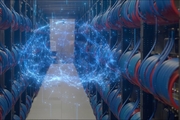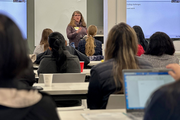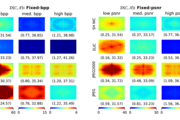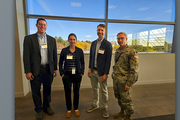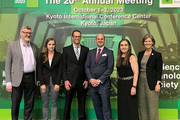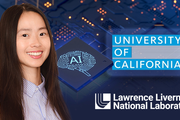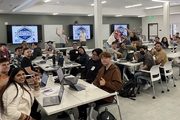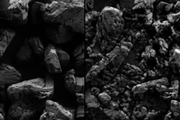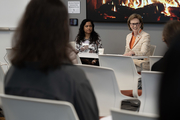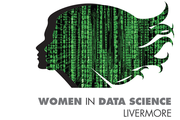Did you know we have a monthly newsletter? View past volumes and subscribe.
Igniting scientific discovery with AI and supercomputing (VIDEO)
April 15, 2024 -
LLNL’s fusion ignition breakthrough, more than 60 years in the making, was enabled by a combination of traditional fusion target design methods, high-performance computing (HPC), and AI techniques. The success of ignition marks a significant milestone in fusion energy research, and was facilitated in part by the precision simulations and rapid experimental data analysis only possible through...
Welcome new DSI team members
April 2, 2024 -
When Data Science Institute (DSI) director Brian Giera and deputy director Cindy Gonzales began planning activities for fiscal year 2024 and beyond, they immediately realized that LLNL’s growth in data science and artificial intelligence (AI)/machine learning (ML) research requires corresponding growth in the DSI’s efforts. “Our field is booming,” Giera states. “The Lab has a stake in the...
WiDS Livermore conference attendees network, share research and absorb wisdom
March 27, 2024 -
Co-sponsored by the DSI, LLNL on March 13 hosted the 7th annual Women in Data Science (WiDS) conference for data scientists, industry professionals, recent graduates and others interested in the field. As an independent satellite of the global WiDS conference celebrating International Women’s Day, the Livermore hybrid event was held to highlight the work and careers of LLNL and regional data...
Predicting climate change impacts on infrastructure (VIDEO)
Feb. 26, 2024 -
At LLNL, electrical grid experts and climate scientists work together to bridge the gap between infrastructure and climate modeling. By taking weather variables such as wildfire, flooding, wind, and sunlight that directly impact the electrical grid into consideration, researchers can improve electrical grid model projections for a more stable future. In a new video, LLNL computer scientist...
Machine learning tool fills in the blanks for satellite light curves
Feb. 13, 2024 -
When viewed from Earth, objects in space are seen at a specific brightness, called apparent magnitude. Over time, ground-based telescopes can track a specific object’s change in brightness. This time-dependent magnitude variation is known as an object’s light curve, and can allow astronomers to infer the object’s size, shape, material, location, and more. Monitoring the light curve of...
Register for WiDS Livermore on March 13
Feb. 8, 2024 -
The annual Women in Data Science (WiDS) conference returns on Wednesday, March 13. This is the seventh year for WiDS Livermore, which is independently organized by LLNL to be part of the mission to increase participation of women in data science and to feature outstanding women doing outstanding work. The all-day WiDS Livermore event is free and will be presented in a hybrid format. Everyone...
Conference paper illuminates neural image compression
Dec. 8, 2023 -
An enduring question in machine learning (ML) concerns performance: How do we know if a model produces reliable results? The best models have explainable logic and can withstand data perturbations, but performance analysis tools and datasets that will help researchers meaningfully evaluate these models are scarce. A team from LLNL’s Center for Applied Scientific Computing (CASC) is teasing...
Lab partners with new Space Force Lab
Nov. 14, 2023 -
LLNL subject matter experts have been selected by the U.S. Space Force to help stand up its newest Tools, Applications, and Processing (TAP) laboratory dedicated to advancing military space domain awareness (SDA). The Livermore team attended the October 26 kickoff in Colorado Springs of the SDA TAP lab’s Project Apollo technology accelerator, designed with an open framework to support and...
LLNL’s Kailkhura elevated to IEEE senior member
Nov. 8, 2023 -
IEEE, the world’s largest technical professional organization, has elevated LLNL research staff member Bhavya Kailkhura to the grade of senior member within the organization. IEEE has more than 427,000 members in more than 190 countries, including engineers, scientists and allied professionals in the electrical and computer sciences, engineering and related disciplines. Just 10% of IEEE’s...
Young leaders learn from Nobel Laureates at Science and Technology in Society Forum
Oct. 24, 2023 -
Early-career staff scientists Kelli Humbird, Chris Young and Brian Giera (director of LLNL's Data Science Institute) connected with Nobel Laureates and discussed important global issues ranging from AI to climate change at the 20th annual meeting of the Science and Technology in Society (STS) Forum in Kyoto, Japan. Lab Director Kim Budil, Acting Chief of Staff Ashley Bahney and Strategic...
LLNL, University of California partner for AI-driven additive manufacturing research
Sept. 27, 2023 -
Grace Gu, a faculty member in mechanical engineering at UC Berkeley, has been selected as the inaugural recipient of the LLNL Early Career UC Faculty Initiative. The initiative is a joint endeavor between LLNL’s Strategic Deterrence Principal Directorate and UC national laboratories at the University of California Office of the President, seeking to foster long-term academic partnerships and...
UC Merced & UC Riverside tackle Data Science Challenge on ML-assisted heart modeling
Aug. 3, 2023 -
For the first time, students from the University of California (UC) Merced and UC Riverside joined forces for the two-week Data Science Challenge (DSC) at LLNL, tackling a real-world problem in machine learning (ML)-assisted heart modeling. Held in the Livermore Valley Open Campus’s newly remodeled University of California Livermore Collaboration Center from July 10-21, the event brought...
Explainable artificial intelligence can enhance scientific workflows
July 25, 2023 -
As ML and AI tools become more widespread, a team of researchers in LLNL’s Computing and Physical and Life Sciences directorates are trying to provide a reasonable starting place for scientists who want to apply ML/AI, but don’t have the appropriate background. The team’s work grew out of a Laboratory Directed Research and Development project on feedstock materials optimization, which led to...
Consulting service infuses Lab projects with data science expertise
June 5, 2023 -
A key advantage of LLNL’s culture of multidisciplinary teamwork is that domain scientists don’t need to be experts in everything. Physicists, chemists, biologists, materials engineers, climate scientists, computer scientists, and other researchers regularly work alongside specialists in other fields to tackle challenging problems. The rise of Big Data across the Lab has led to a demand for...
Data science meets fusion (VIDEO)
May 30, 2023 -
LLNL’s historic fusion ignition achievement on December 5, 2022, was the first experiment to ever achieve net energy gain from nuclear fusion. However, the experiment’s result was not actually that surprising. A team leveraging data science techniques developed and used a landmark system for teaching artificial intelligence (AI) to incorporate and better account for different variables and...
Celebrating the DSI’s first five years
May 18, 2023 -
View the LLNL Flickr album Data Science Institute Turns Five.
Data science—a field combining technical disciplines such as computer science, statistics, mathematics, software development, domain science, and more—has become a crucial part of how LLNL carries out its mission. Since the DSI’s founding in 2018, the Lab has seen tremendous growth in its data science community and has invested...
Computing codes, simulations helped make ignition possible
April 6, 2023 -
Harkening back to the genesis of LLNL’s inertial confinement fusion (ICF) program, codes have played an essential role in simulating the complex physical processes that take place in an ICF target and the facets of each experiment that must be nearly perfect. Many of these processes are too complicated, expensive, or even impossible to predict through experiments alone. With only a few...
Scientists develop model for more efficient simulations of protein interactions linked to cancer
March 28, 2023 -
LLNL scientists have developed a theoretical model for more efficient molecular-level simulations of cell membranes and their lipid-protein interactions, part of a multi-institutional effort to better understand the behavior of cancer-causing membrane proteins. Developed under an ongoing collaboration by the Department of Energy and the National Cancer Institute (NCI) aimed at modeling cell...
First-ever hybrid Women in Data Science Livermore event celebrates achievements, supports women in the field
March 14, 2023 -
Celebrating International Women’s Day on March 8, LLNL women data scientists, Lab employees and other attendees interested in the field gathered at the Livermore Valley Open Campus for the annual Livermore Women in Data Science (WiDS) regional event held in conjunction with the global WiDS conference. Attendees met online and in-person for the forum, highlighting women in computing and the...
Register for WiDS Livermore on March 8
Jan. 31, 2023 -
The annual Women in Data Science (WiDS) conference returns on Wednesday, March 8. LLNL will again host a regional event in conjunction with the worldwide conference. The all-day WiDS Livermore event is free and will be presented in a hybrid format. Everyone is welcome to attend. Along with plenty of food and networking opportunities, WiDS Livermore will include a livestream of the Stanford...

